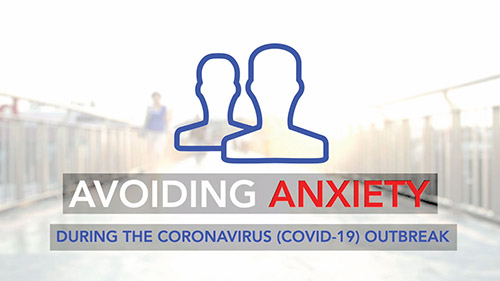




During stressful times, it is especially important to take care of your emotional well-being. At Englewood Health, we are continually evolving in how we meet the mental health needs of our community. In addition to providing outpatient mental health services and inpatient psychiatric care, our behavioral health team is committed to community outreach, with an emphasis on prevention, early intervention and self-care to foster emotional wellness for both children and adults.
Here are some helpful resources:
As you know, children comprehend information differently at different ages. Support your child in a manner that is appropriate for their individual developmental stage.
Recognize the signs and symptoms of your child’s stress.
Gather facts to answer your child’s questions accurately. The CDC offers online suggestions for talking with children about COVID-19.
Listen to your child and talk with them in a calm, reassuring tone.
Encourage your child to ask questions, and answer their questions honestly, at an age-appropriate level.
Limit the amount of TV, radio and online news—too much COVID-19 coverage can lead to anxiety.
Teach your child things they can do to reduce the spread of the virus.
Frequent and proper handwashing
Sneezing into a tissue or elbow and throwing the tissue into the garbage
Keeping sufficient distance from people who are sick or who are sneezing or coughing
Create structure and routines to maintain a sense of normalcy.
The Gregory P. Shadek Behavioral Care Center leads ongoing educational programs to support the emotional well-being of youth and adults throughout our community. The center is actively engaging at-risk populations, to mitigate the psychological impact of the pandemic.
Events and topics include:
“How to Manage Anxiety During this Crisis,” an online presentation in collaboration with the Englewood Public Library (available on the library’s Facebook page)
“Emotional Stress in Caring for Children During this Time,” presented online for the Women’s Rights Information Center in Englewood
“When Your World Feels Upside Down,” a webinar presented for Dwight Morrow High School students in partnership with Metro Community Center in Englewood
“Express Yourself,” a four-session, weekly art therapy series on Instagram, focused on key emotional wellness themes, for students ages 7-12 and 13-18, presented with Englewood Health’s Graf Center for Integrative Medicine
Englewood Health’s Dr. Tracy Scheller, medical director of the Graf Center for Integrative Medicine, and its team of licensed clinical social workers are developing live and recorded webinars for the community, Englewood Health patients and staff, focused on self-care and emotional wellness. The programs will be available online. Visit englewoodhealth.org for more information.
Meditation, Wednesdays, 4:00-4:45 p.m., on Facebook.com/TheGrafCenter
Virtual yoga
Digital library of lectures by Englewood Health experts
It is important that we be aware of our own stressors and recognize our limits. If we are emotionally healthy, we are better able to support our children, our parents and the elderly and other vulnerable people in our community. Self-care is essential; use this opportunity to take care of and protect yourself.
Here are some basic self-care tips:
1. Eat healthfully.
2. Get a good night’s sleep.
3. Move your body (walk, yoga, dance).
4. Try a wellness app (meditation, mindfulness).
5. Be in the now (when your mind wanders and fear sets in, return to the present).
6. Practice positive self-talk. Remind yourself that this will not go on forever. Tell yourself, “You will adjust, you will heal.”
7. Embrace positive distractions—binge-watch a show, listen to music, flip through a magazine.
8. Avoid becoming a media junkie. Overconsuming COVID-19 coverage fuels anxiety. Turn it off!
9. Connect with others through technology. Call, text or use a video chat platform like FaceTime.
10. Take breaks throughout the day.
When you are feeling anxious, focus on the present. Ask yourself, “What do I need to do today?” Enjoy the things we are still able to do—go for a walk, read a book, cook, spend time with your family.
Englewood Health’s psychiatrists and licensed clinical social workers now offer telehealth psychotherapy, as well as bereavement therapy, for those who have lost a loved one to COVID-19. If you are experiencing chronic anxiety, having difficulty controlling worry or feeling depressed, talk with your doctor. You may benefit from short- or longer-term therapy.
We may all be living in this unfamiliar situation for an extended period of time. I encourage everyone to be aware of their emotional health and to prioritize self-care.
For more information, visit www.englewoodhealth.org.
Lauren Menkes, LMSW, MPH, is director of social work at Englewood Health.










